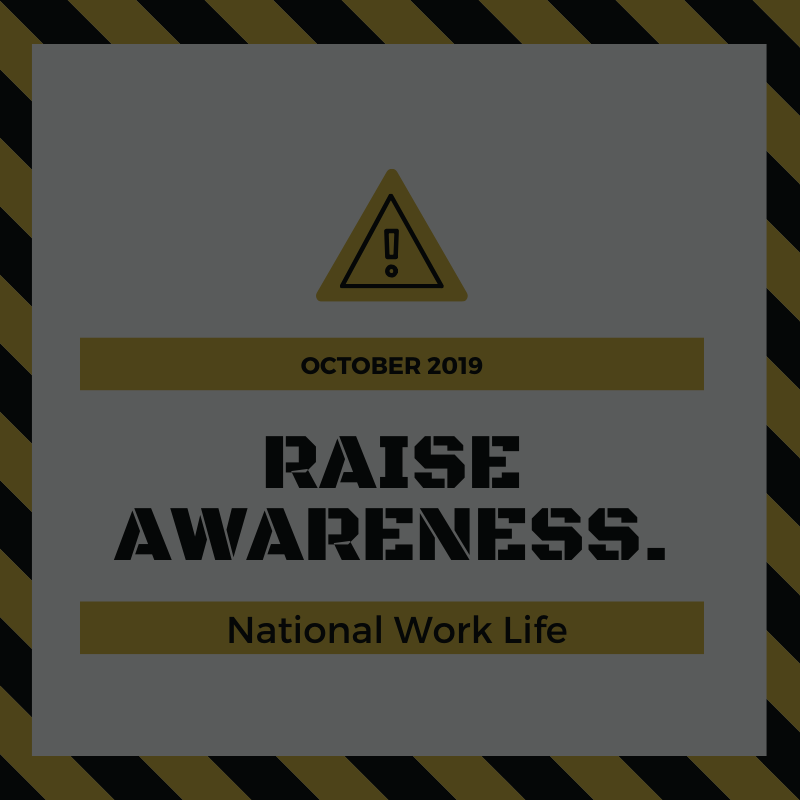Is work bad for your wellbeing?
National Work Life Week (October 7-11) provided the opportunity for employers and employees to focus on wellbeing in the workplace and the importance of work life balance.
The fact that there was such an event highlights the growing concern that the world of work can have a negative effect on health, mentally and physically. In today’s fast-paced world, many employers are expecting their employees to take on higher volumes of work and to stay late to meet deadlines.
When a long-hours culture becomes the norm, it’s hard to break it. Employers assume that their staff will knuckle down to show dedication to getting the job done. At the same time, employees fear that, if they don’t put in the hours, it could harm their career.
Some of my clients have told me that they have been working nearly 18 hours a day, which is one of the reasons they have sought one of my health programmes. Without a proper work life balance, people become stressed, tired and demotivated. So, as we say, prevention is better than the cure.
I’ve mentioned these statistics before but they’re worth repeating. Figures from the Health and Safety Executive show that 15.4 million working days were lost due to stress in 2017/18, up from 12.5 million the previous year. This equates to 57.3 per cent of the 26.8 million working days lost due to ill health.
Now, as the nights draw in, those who are already feeling depressed are likely to become more withdrawn. The winter months affect our neurotransmitters, we get less vitamin D and an increase in melatonin. This is a mood regulator that reduces energy during darkness to aid sleep. But it also contributed to increased fatigue and even depression.
Look after your employees
While the paycheque is, of course, essential, employees also want their skills to be valued and to feel that what they do matters. That’s why it’s so important that employers recognise people as individuals and support their sense of worth.
By giving priority to wellbeing and work life balance, employers will reap the benefits of having a happier staff who will look forward to coming to work and be prepared to go the extra mile.
Results from a study by Mercer in 2018 bear this out. It collected input from 800 business executives, 1,800 HR leaders and more than 5,000 employees across 21 industries and from 44 countries. The study identified top talent trends. This can be useful for companies that are trying to stay ahead of the game with employee satisfaction. The findings showed that flexible working, health and wellbeing and a sense of purpose were paramount.
First and foremost, employers need to trust their employees. Unfortunately, in some sectors, there’s a belief that working from home is shirking from home. Obviously working from home may not always be suitable, depending on the business. But there’s no reason why people can’t work different hours. Flexible working can and does lead to better productivity.
As well as providing flexibility, employers should be aware of any issues or problems that employees are facing. Perhaps difficulty with a co-worker or being the victim of bullying. Maybe events at home are having an impact. It’s worth considering providing a forum for discussing health and wellbeing and getting to the root cause of what is making an employee distressed.
In the long term, employers benefit from better employee engagement and work quality through improved morale. It helps to retain staff, therefore saving money on retraining replacements. There could also be further savings in temporary cover, recruitment costs and health insurance.
Talk to your employer
Employees, on the other hand, should be prepared to grasp the mettle and talk to their bosses. Tell them about any problems you may be experiencing. They may be more sympathetic than you think.
As a naturopath, I can suggest ways of combating the mental and physical effects of stress. Breathing techniques work wonders in stimulating relaxing and lowering blood pressure.
Try listening to music to boost your mood and, it’s essential to get a good night’s sleep. Don’t be tempted to turn to stimulants such as alcohol and caffeine when feeling low – they only make the stress worse.
Natural food supplements, such as vitamin B complex will support the nervous system and boost energy levels.
Given that most of us spend a large chunk of our time at work, better flexibility and balance is good everyone. After all, we only have one life so we need to do everything we can to protect it and stay healthy.
If you would like to find out more about how naturopathy can help, email me at hello@futurehealthmanagement.co.uk

